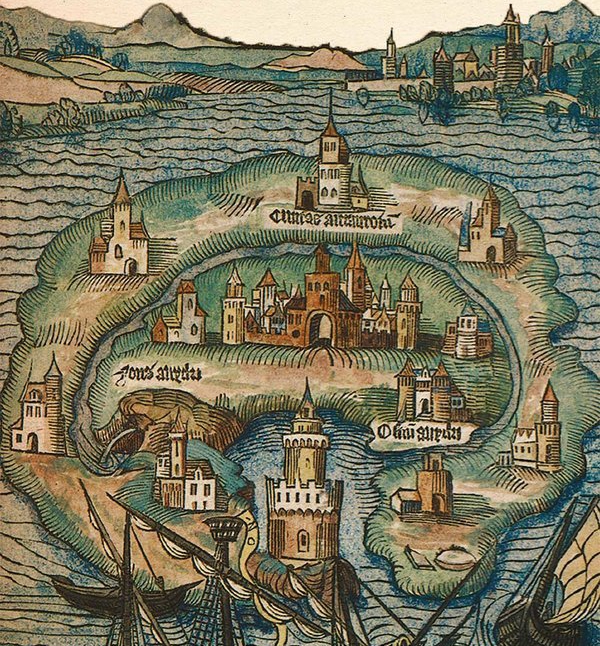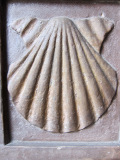
Thomas More’s fictive island Utopia
Working Group Ethnology of Religion
Call for Papers for the conference ‘Religious Utopias’. Humboldt University Berlin, March 16-18, 2023.
Organised by the SIEF Working Group on Ethnology of Religion in collaboration with Humboldt University Berlin
The hope for a better, a utopian world is a powerful force. Utopian promises help to endure and make sense of life, but they also suggest the possibility of social change. Religions can be looked upon as utopian enterprises – offering imaginations and (ritualized) practices that reach beyond the present into an ideal(ized) future. In the face of the current ecological destruction, intensified social conflicts, expanding conflicts, and general increased uncertainty – not least due to the pandemic and the war in Ukraine with its cluster of consequences – the SIEF Working Group on Ethnology of Religion seeks to explore the utopian potential of the religious.
The ‘religious’ is hereby understood broadly, including not only traditional institutional religions, but also new, alternative, or implicit religious and spiritual forms and movements. The concept of utopias is also cast broadly. It roughly refers to an “ideal society” or “ideal world.” Religious utopias encompass grand cosmologies of a coming “paradise”, but also infuse the day-to-day struggle with positive, hopeful, spiritual and religious meaning.
Utopias can be based on the idea of a radical break with former epochs. They also explore the possibility of a different “here and now”; and yet again, utopias might be grounded in nostalgia – in an imagined, glorified or idealized past, that should and will be brought back and thus “re-enchant” time and space. Last but not least, utopia and dystopia are never far apart from one another: someone’s “ideal world” might represent “hell on Earth” for others.
We invite presenters to discuss a variety of topics, amongst which could be the following:
- How do religions and religious communities in contemporary as well as historical times symbolically (ritually) articulate utopian imaginations of an “ideal” future?
- How can we explore ideas and practices of utopia ethnographically?
- In which way do utopian thinking and practice manifest themselves in organizations (e.g. in small, secluded religious/spiritual communities)?
- How do ideas of utopia shape and inscribe themselves into religious material culture and architecture?
- In what manner do rapidly changing media recast the ways religious utopias get aesthetically expressed and thus become an active part in forming religious utopian contents and ideas?
- What role do gender and other identity categories play in utopian imaginations? How do those categories get spelled out in religious utopian visions?
- How are artistic and visionary religious utopias articulated and presented in fine arts?
- How does pop culture and literature address religion in relation to utopia und thus create a kind of “utopian religion” – as for example in the utopian literary and film genre, and utopian fiction more in general?
- Etc.
By opening up a wide range of topics and by inviting papers with various perspectives we aim to contribute – ethnographically and theoretically – to the recent debate on “future practice” in neoliberal times and on “sustainability”. Doing so we wish to further develop an “anthropology of the utopian and the good”, not as a counterpoint to the emergent “dark anthropology”, but in interaction with it laying open the significance of the religious and/or spiritual as a central model to shape, experience, and inscribe meaning within the utopian.
The conference will take place in presence in Berlin (not online!) during 16-18 March 2023 at Humboldt University.
Conference fee: €50 for senior lecturers/professors/full employees; €20 for junior researchers/students (the fee covers meals, reception and entrance fees for the visit of the newly opened Humboldt-Forum)
Proposals (an abstract of no more than 250 words) should be sent until December 1st 2022 to Victoria Hegner: victoria.hegner(at)phil.uni-goettingen.de
The selection committee will make its decision very soon to allow ample time for participants to apply for travel funds.
Scientific committee
The SIEF Working Group on Ethnology of Religion Board:
Victoria Hegner, Alessandro Testa, Thorsten Wettich, Peter Jan Margry, Clara Saraiva




